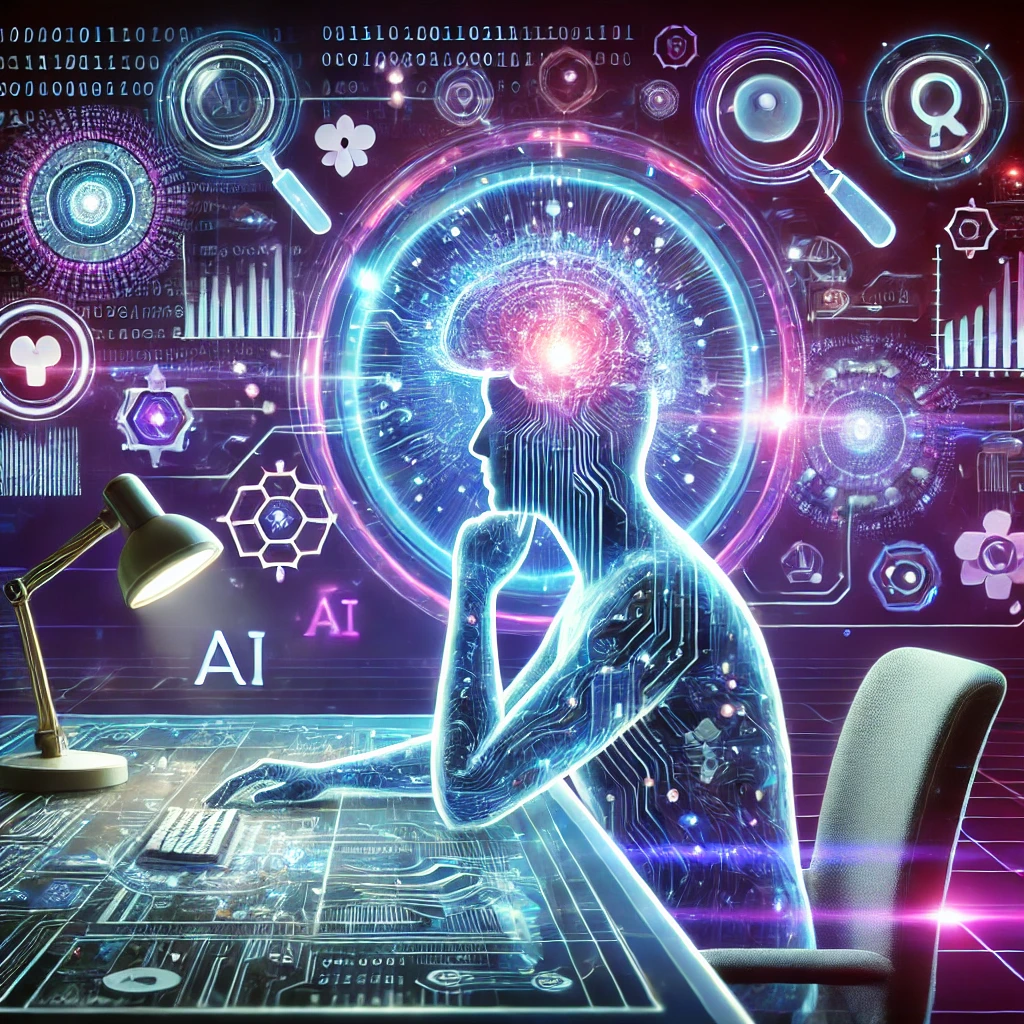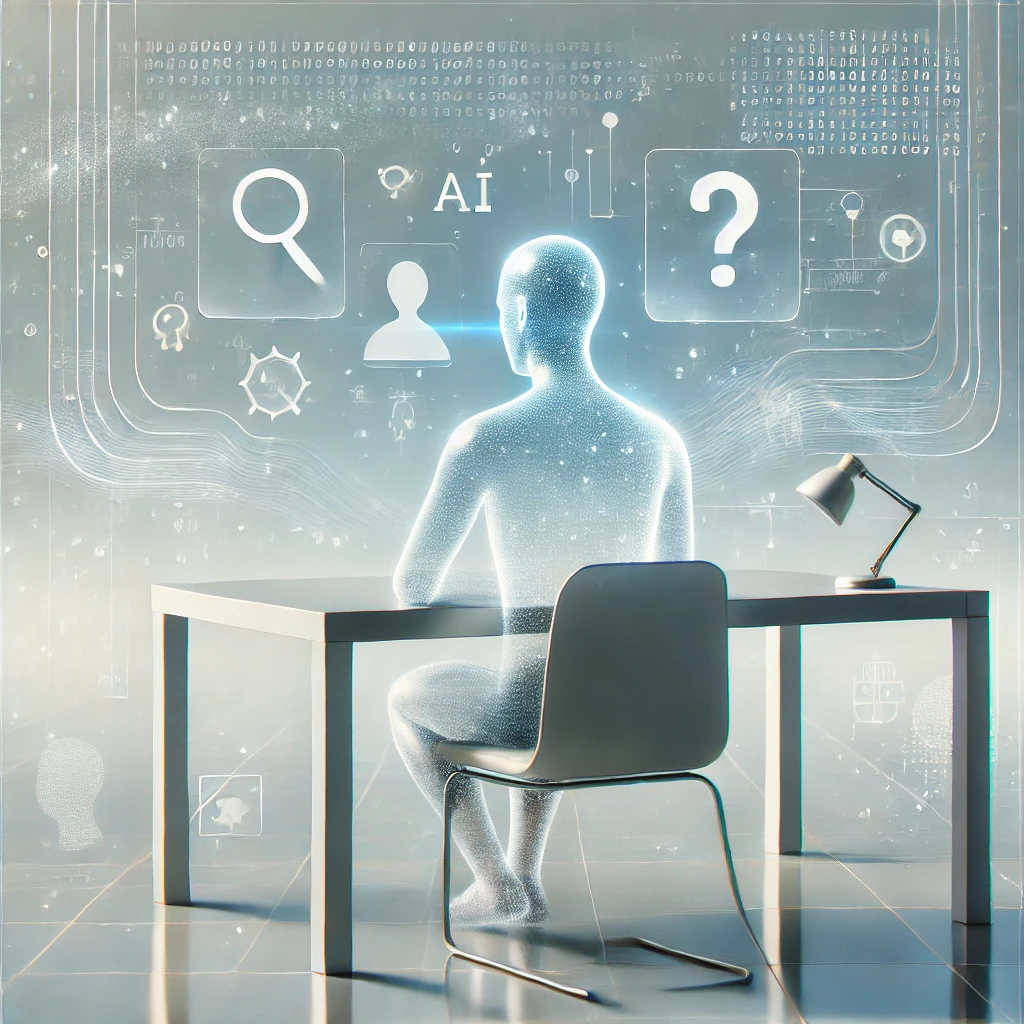
ChatGPT:
Expanded Summary: The Impact of Generative AI on Critical Thinking
Self-Reported Reductions in Cognitive Effort and Confidence Effects from a Survey of Knowledge Workers
This study, authored by researchers from Carnegie Mellon University and Microsoft Research, investigates the impact of Generative AI (GenAI) on critical thinking among knowledge workers. It focuses on two main research questions:
1. When and how do knowledge workers perceive the enaction of critical thinking when using GenAI?
2. When and why do knowledge workers perceive increased or decreased effort for critical thinking due to GenAI?
By surveying 319 knowledge workers and analyzing 936 real-world examples of GenAI use, the researchers found that confidence in AI tends to reduce critical thinking, while confidence in one’s own skills encourages it. AI shifts cognitive effort away from direct problem-solving toward verification and integration, raising concerns about over-reliance and potential skill atrophy.
- Background and Context
1.1 The Role of GenAI in Knowledge Work
GenAI tools (e.g., ChatGPT, Microsoft Copilot, and Gemini) are increasingly integrated into professional environments, assisting with tasks such as:
• Content creation (e.g., drafting reports, summarizing documents)
• Information retrieval (e.g., fact-checking, learning new topics)
• Decision-making support (e.g., drafting recommendations, validating insights)
While these tools improve efficiency, they may diminish users’ engagement in deep, critical thought. This phenomenon is similar to concerns raised by past technological shifts, such as the introduction of calculators in math education or the reliance on search engines for fact recall.
1.2 Critical Thinking in the AI Era
The study adopts Bloom’s Taxonomy to define critical thinking as a set of six hierarchical cognitive processes:
1. Knowledge – Remembering facts and concepts
2. Comprehension – Organizing, summarizing, and interpreting ideas
3. Application – Using knowledge to solve problems
4. Analysis – Breaking down concepts into smaller components
5. Synthesis – Combining information to form new ideas
6. Evaluation – Judging the quality and validity of information
GenAI tools impact each of these processes differently, with notable shifts in effort allocation and decision-making behaviors among users.
- Key Findings: AI and Critical Thinking in Knowledge Work
2.1 When and How Do Workers Enact Critical Thinking?
Workers engage in critical thinking when using GenAI primarily to ensure quality and accuracy in their work. However, this engagement is not uniform across all tasks.
• Higher AI confidence leads to less critical thinking – Users who trust AI too much engage less in verification, questioning, or independent analysis.
• Higher self-confidence leads to more critical thinking – Workers who feel confident in their own skills critically assess, refine, and integrate AI outputs.
• GenAI shifts cognitive effort from execution to oversight – Users spend less time crafting content and more time verifying AI-generated outputs.
2.2 Motivators for Critical Thinking
Knowledge workers engage in critical thinking when using AI for three main reasons:
1. Work Quality – Users apply critical thinking to refine AI outputs, especially when initial responses are generic, shallow, or lack specificity.
2. Avoiding Negative Outcomes – In high-stakes settings (e.g., healthcare, finance, legal fields), users validate AI outputs to prevent errors, misinformation, or reputational damage.
3. Skill Development – Some workers actively engage with AI to learn and improve their own skills, using AI as a tool for self-education rather than passive automation.
2.3 Barriers to Critical Thinking
Several factors discourage workers from thinking critically when using AI:
1. Trust and Over-Reliance on AI – Many users assume AI-generated outputs are correct and reliable, leading to blind acceptance of responses.
2. Time Pressure and Job Constraints – Workers in fast-paced jobs (e.g., sales, customer service) often lack time to critically evaluate AI outputs.
3. Limited Domain Knowledge – Users without expertise in a subject struggle to verify AI responses, making it harder to engage in deep evaluation.
4. Difficulties in AI Oversight – AI often misunderstands user intent or ignores revisions, making it frustrating to refine its outputs effectively.
- AI’s Impact on Cognitive Effort: When Is Critical Thinking Easier or Harder?
3.1 How AI Reduces Perceived Cognitive Effort
For most users, AI decreases the effort required for:
• Knowledge recall (72%) – AI quickly retrieves facts and information.
• Comprehension (79%) – AI helps summarize and organize content.
• Synthesis (76%) – AI combines multiple sources into cohesive summaries.
Workers perceive AI as a shortcut that removes the need for extensive mental processing, particularly in repetitive or information-heavy tasks.
3.2 When AI Increases Cognitive Effort
Despite its advantages, AI increases effort in:
• Evaluation (55%) – Workers must verify AI responses, particularly in high-stakes or complex tasks.
• Analysis (72%) – AI-generated insights often require fact-checking and cross-referencing before they can be used confidently.
This shift suggests that while AI makes content generation easier, it also creates new cognitive demands related to oversight, verification, and bias detection.
- Broader Implications and Future Challenges
4.1 Risks of Over-Reliance and Skill Atrophy
While AI improves efficiency, long-term over-reliance could lead to:
• Reduced independent problem-solving – Workers may become less capable of evaluating information without AI assistance.
• “Mechanized convergence” – AI-generated responses tend to be formulaic and standardized, reducing creativity and diversity in professional outputs.
• Diminished learning opportunities – If workers use AI as a crutch rather than a learning tool, they risk losing key skills over time.
4.2 Design Recommendations for Future AI Tools
To mitigate these risks, the study suggests that AI tools should be designed to:
• Encourage active user engagement – AI should prompt users to critically evaluate responses rather than passively accept them.
• Provide transparency and explainability – AI should cite sources and offer reasoning behind outputs to aid verification.
• Facilitate user control – Workers should have more flexibility in refining AI outputs and providing feedback to improve accuracy.
- Conclusion
The research highlights both the benefits and risks of AI in knowledge work. While AI reduces cognitive effort in many tasks, it also shifts the nature of critical thinking from problem-solving to verification. Workers who blindly trust AI may experience reduced critical engagement, while those with higher self-confidence remain active participants in decision-making.
To ensure AI supports rather than erodes critical thinking, future AI development should focus on designing tools that empower users rather than simply automating cognitive tasks.
***************************
FAQs: The Impact of Generative AI on Critical Thinking
- What is the main focus of this study?
The study examines how Generative AI (GenAI) affects critical thinking among knowledge workers. It explores when and how workers engage in critical thinking when using AI tools and whether AI increases or decreases their cognitive effort.
- How was the study conducted?
Researchers surveyed 319 knowledge workers who shared 936 real-world examples of how they use AI in their jobs. The study analyzed their self-reported critical thinking behaviors and the perceived effort required to engage in various cognitive tasks.
- What are the key findings?
• AI reduces cognitive effort in knowledge recall, summarization, and synthesis.
• Confidence in AI reduces critical thinking, while confidence in oneself increases it.
• AI shifts cognitive effort from problem-solving to verification.
• Workers in high-stakes roles (e.g., healthcare, finance) engage more in critical thinking than those in routine tasks.
• Over-reliance on AI may lead to skill atrophy and reduced independent thinking. - How does AI impact critical thinking?
AI changes the nature of critical thinking by shifting the focus from creating content to reviewing and verifying AI outputs. While AI can enhance efficiency, excessive reliance on it can diminish independent problem-solving skills over time.
- Does using AI always reduce critical thinking?
Not necessarily. Workers with high self-confidence tend to engage in more critical evaluation of AI outputs. However, those who trust AI too much often skip verification and blindly accept AI-generated content.
- What are the risks of over-reliance on AI?
• Reduced independent problem-solving – Workers may become passive consumers of AI-generated outputs.
• “Mechanized convergence” – AI-generated responses often follow patterns, reducing creativity and diversity.
• Skill atrophy – If AI is used as a crutch, workers may lose essential analytical and decision-making abilities over time. - How do workers ensure AI-generated content is reliable?
• Cross-referencing external sources (e.g., official reports, reputable websites).
• Using domain expertise to assess accuracy and bias.
• Refining AI prompts to produce more reliable outputs.
• Manually editing AI-generated content to align with task-specific requirements. - In what types of tasks does AI reduce cognitive effort?
AI significantly reduces effort in:
• Knowledge recall – Quickly retrieving facts and data.
• Summarization – Generating concise versions of long documents.
• Idea synthesis – Combining multiple sources into a coherent response.
- When does AI increase cognitive effort?
Workers spend more effort on:
• Evaluating AI outputs – Checking accuracy, biases, and alignment with task objectives.
• Verifying sources – Ensuring AI-generated citations or references are correct.
• Adapting AI responses – Editing content for appropriateness, clarity, and tone.
- What can AI developers do to support critical thinking?
• Enhance AI transparency – Provide source citations and explain reasoning behind outputs.
• Encourage user engagement – Prompt users to review and refine AI-generated content.
• Allow more user control – Enable easier customization and feedback on AI responses.

